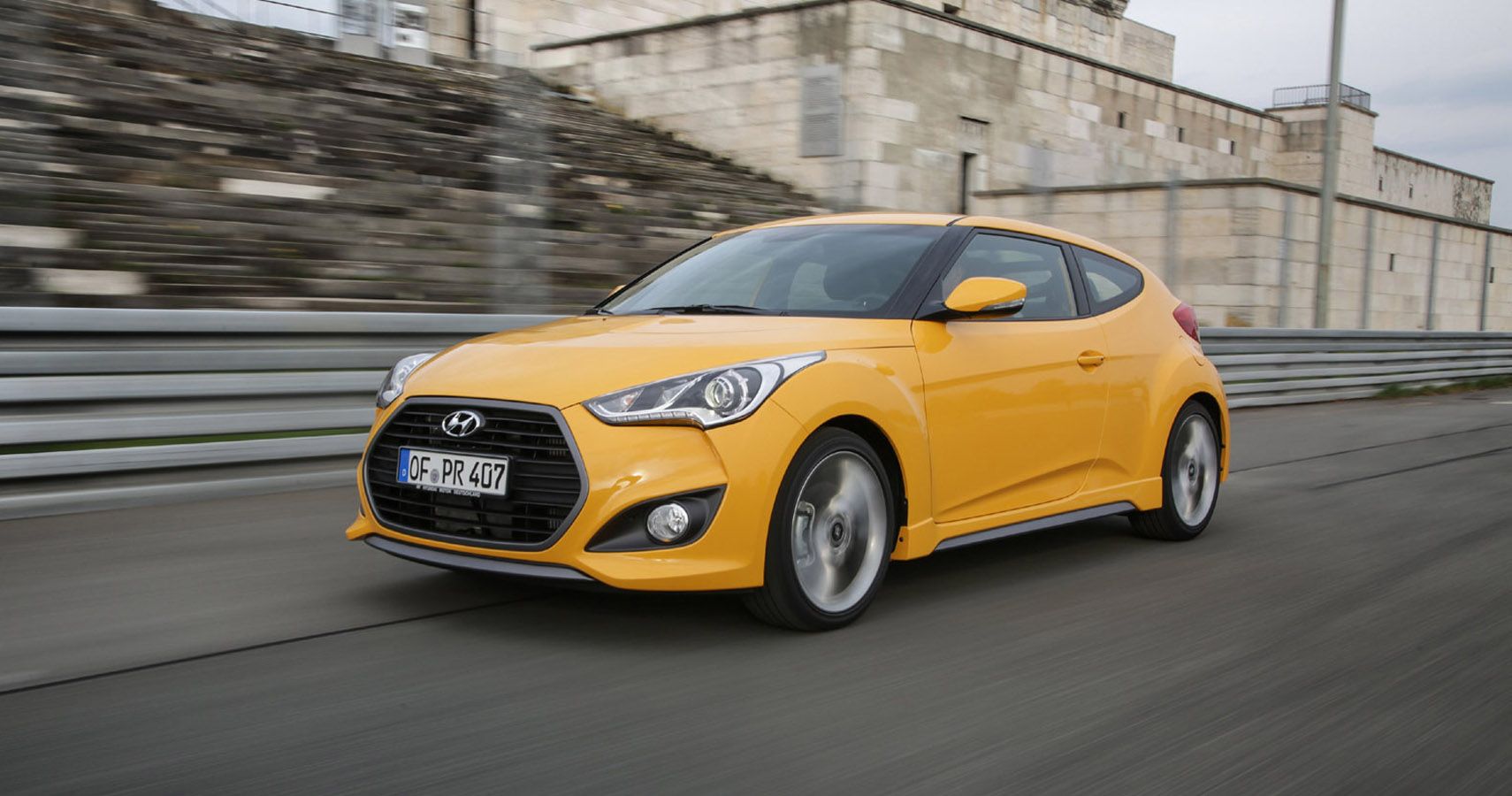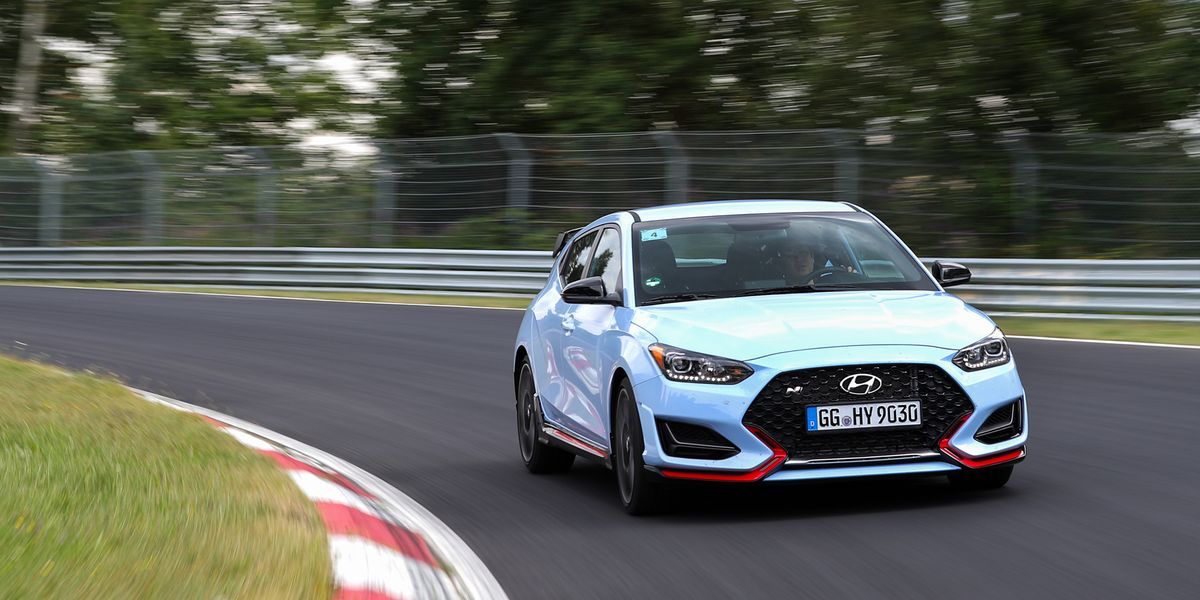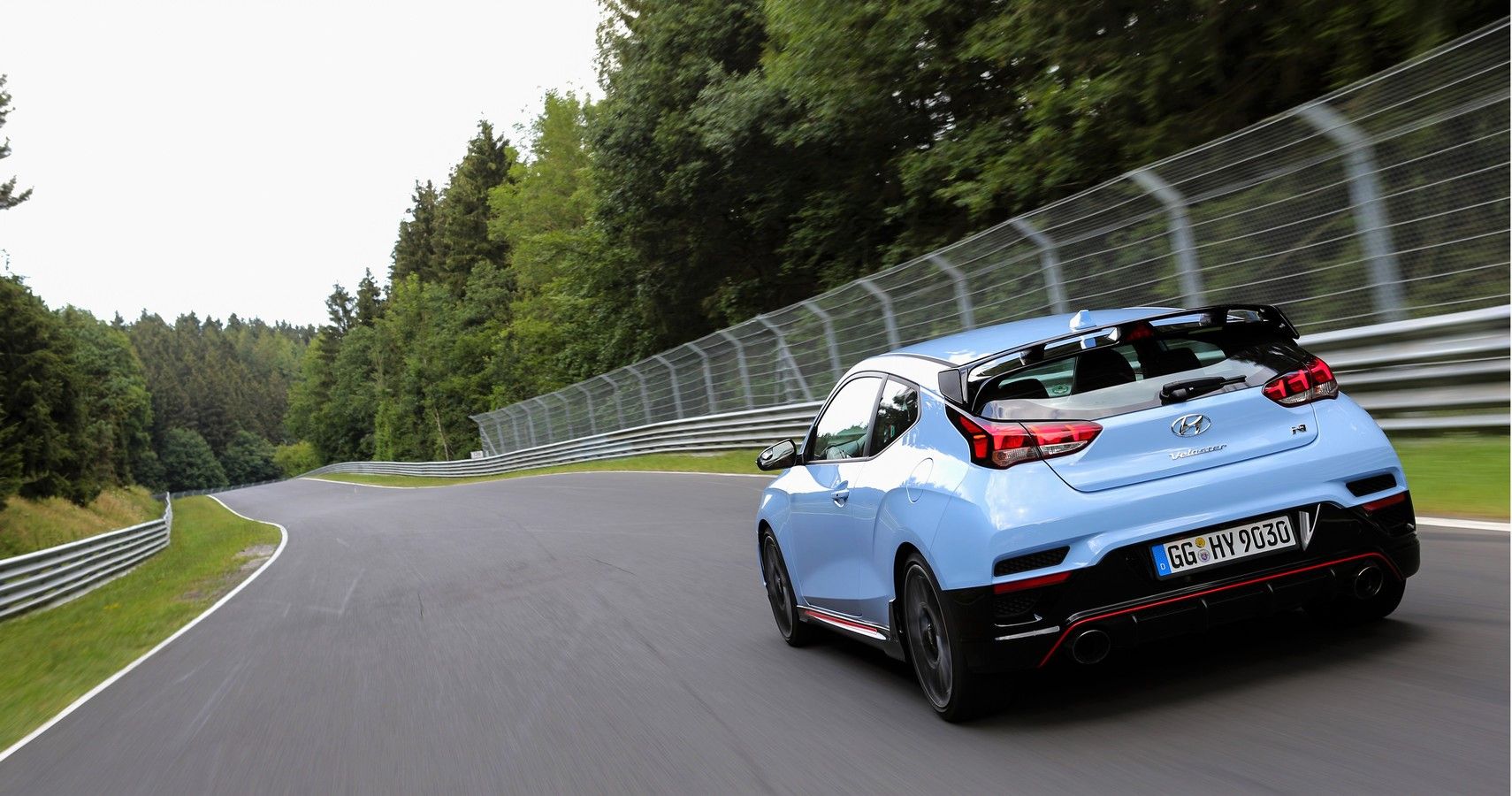When you think of Hyundai, it’s likely that sports cars aren’t the first thing that comes to mind. The Japanese marque is a leader in the market for city and family cars. Cars like the i10 and now the likes of the Ioniq series are ever-increasing in popularity.
However, in 2011, Hyundai came out with a car that was, if anything, ahead of its time. The Veloster was a small, 2-door, 4-seat coupe sports car. It looked like everything that came before it and everything that followed. The final production Veloster looked very similar to the concept car it was based on, which is always a good thing. It sold 204,000 units in the USA over its 10-year-long lifespan and two-generation sales span. The Veloster was a popular car, but it was not a long-lasting success. The last production run was the
2022 Hyundai Veloster. We think the Veloster was a car that earned itself more credit than it was given, here’s why.RELATED: This Is What Makes The 2023 Hyundai Elantra Hybrid An Excellent Subcompact Car
Hyundai
The Veloster was the successor to the Hyundai Tiburon (Spanish meaning shark). The Veloster was advertised as a sporty hatchback coupe similar to the Alfa Romeo Brera and the Volkswagen Scirocco. The 2+2 seating arrangement meant that it was not suitable for big families, but despite this, in its first year of sales, a total of 9,284 units of the Veloster were sold in the US.
Engine-wise, there were 3 versions of a 4-cylinder 1.6-liter motor available, putting out around 138HP. There were two versions of the 4-cylinder 1.6-liter motor that were fuel-injected and one that was turbocharged. All three models had the option of a 6-speed manual or dual-clutch auto and a 7-speed DCT. The platform upon which the Veloster was constructed was Hyundai’s famous PB. It was the same platform as the i20 and Rio. For the most part, the Veloster sold well, and it would develop a cult following in years to come.
Hyundai-N Division Gave Veloster The Best Makeover
Hyundai
The second-generation Veloster was released in 2018. It looked incredible. The N division of Hyundai, the marque’s high performance brand, launched the i30N in 2016. This car had been a dominant contender in WRC and was well-suited for use as a hot hatch for the roads. They decided that this new-gen Veloster deserved the same treatment.
The Veloster N became the first N-product sold in North America. They were a niche product, but they were still very popular. It was a step above the regular car’s performance. It was available in 6-speed manual or 8-speed dual-clutch, with paddles. The Veloster N was said to accelerate from 0 to 60 in just 5.6 seconds. The turbocharged 4-cylinder now put out 275HP, enough to compete with the GTIs and S3s of the world.
RELATED: How Hyundai Plans A 10 Percent Rise In Global Sales
Hyundai
We believe that the Veloster deserved better. It was made at a time when SUVs and crossovers were in high demand. This eventually led to its failures. The Veloster gave a glimpse at the special work that was being done between Hyundai’s Seoul-Nurburgring development centers.
Hyundai is now focusing its attention on cars like the Elantra N and Kona N, which are both very strong but have been brought to the US to take advantage of the SUV boom. The standard Veloster was a hatchback that was everything anyone could want. However, this was not enough to keep Hyundai from dropping it from their lineup.
The Veloster was a different vehicle. Although the design was innovative, it is not for everyone. We love the Veloster for its quirkiness and affordability, it definitely deserves to be remembered, and with time we think more people will look back at it with fond memories.
Sources: Hyundai, CarFigures
Auto - Show Biz clinic originally published at Auto - Show Biz clinic








